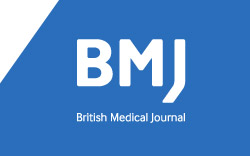

The BMJ is a weekly peer-reviewed medical journal, one of the oldest general medical journals in the world. Originally it was named the British Medical Journal, in 1988 the name was officially abbreviated to BMJ, and in 2014 it was changed to The BMJ. The magazine is published by the BMJ Group, a subsidiary of the British Medical Association. The current Editor-in-Chief is Fiona Godley.
The British Medical Journal, together with the Ministry of Health of Ukraine have signed an agreement for training of healthcare workers and teachers of medical universities through the online services of the British Medical Journal (BMJ) as part of the Worldwide Anti-Infectious Diseases Program
The BMJ is an information portal that includes training modules for over 20 medical specialties, useful links to British clinical protocols and national guidelines, various scientific publications in all medical specialties, a large database of clinical cases for helping to make clinical decisions, and others.
A research, in order to evaluate how our products help in the training of infectious diseases specialists, family doctors and medical students, is being carried out.
Participants are encouraged to use The BMJ Training products and The BMJ Best Practice.
Who can benefit from it?
The members of the target audience include:
-Specialists in infectious diseases
-Epidemiologists
-Family doctors
-Specialists in childhood infectious diseases
-Specialists in public health
-Managers on the risks associated with outpatient patients
-Postgraduate students (specializing in health care)
It can also be interesting for representatives of other medical specialties.
What are the benefits of participating in the program?
Educational information is constantly updated, which allows you to master the most advanced knowledge of disciplines. For each passed module the participant receives a certificate.
Requirements for participation:
At present, 54 people from Odessa National Medical University, who have been taking an active part in the BMJ project since 2016, have been registered.
The time limits of the next registration for the BMJ project are being further specified and will be promptly given on the university’s website.
As part of the project’s promotion, it is planned to translate the contents into Ukrainian, for which volunteers with a sufficient level of English language proficiency and knowledge of medicine are invited.
Currently, access to the project is provided free of charge to those users who are subscribed and compulsorily pass at least 2 modules on infectious diseases per month.